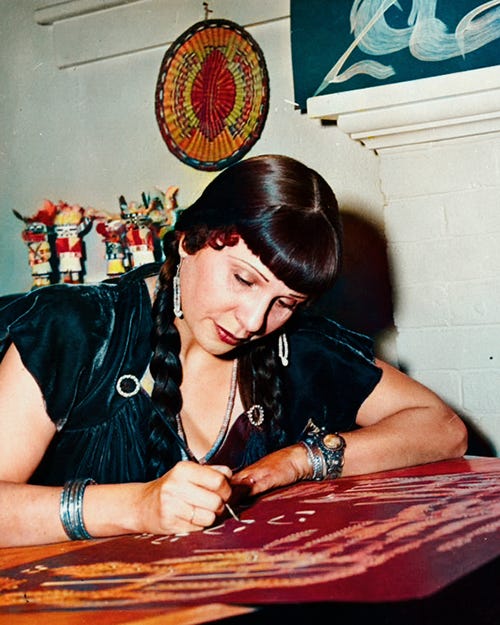
Pop Chalee was born Merina Lujan in 1906 in Castle Gate, Utah. Her grandmother named her after "blue flower" in Tiwa, the Taos language. Chalee’s mother, Merea, was an East Indian Mormon, and her father, Joseph, was Taos. Her parents separated when she was young, and Joseph sent Chalee and her siblings to boarding school in Santa Fe, New Mexico. During the summer, the children joined him in Taos, where they immersed themselves in Pueblo traditions.
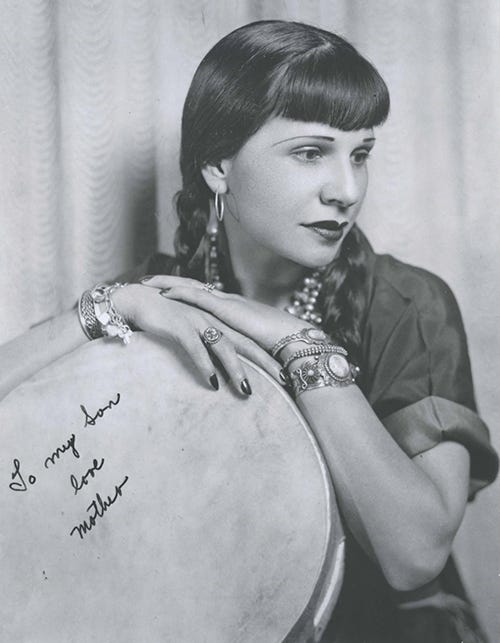
Around 1920, Chalee and her siblings moved to Utah to live with their mother. At 16, she left home and married Otis Hopkins, a Mormon craftsman. They had two children: Jack Cruz Hopkins, Sr., born in 1924, and Betty, born two years later. During the Great Depression, the family moved between Taos and Salt Lake City. Chalee began performing as a singer as well as lecturing to raise awareness of Native Americans and the Taos, promoting their full legal and educational rights.
By the mid-1930s, Chalee returned to New Mexico, where Mabel Dodge Luhan encouraged her to take classes with the legendary Dorothy Dunn. Here, she developed her style of painting idyllic animals, forests, and ceremonial figures. After her first year, Chalee worked at the Laboratory of Anthropology, documenting their collection of Native American pottery and strengthening her pride in Native art and techniques. From there she became well-known in art circles for her painting style and fashion sense.
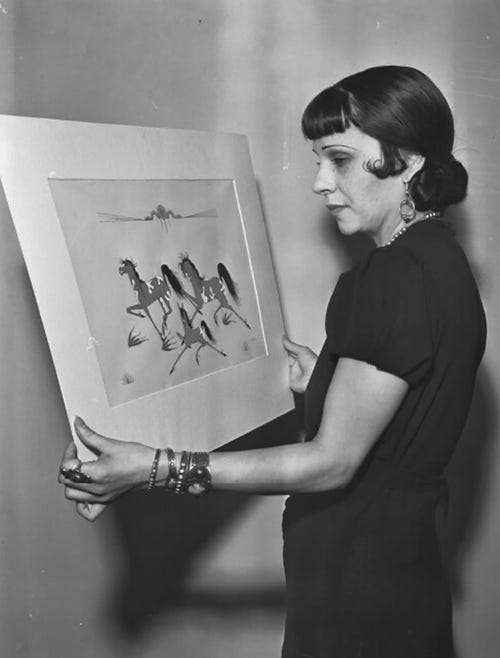
In the late 1930s, Walt Disney reportedly visited Dunn's painting studio, where he purchased Chalee's work. She recalled that despite Disney's attempt to hire several students, all declined. Chalee developed a friendship with Disney and attended the opening of Disneyland with her second husband. Her whimsical interpretation of a deer was said to inspire Disney's Bambi. In 1939, Chalee participated in the New York World's Fair and the Golden Gate International Exposition in San Francisco.
In 1942, Chalee relocated to Los Alamos during the Manhattan Project, where her husband worked as a machinist. She enjoyed her job as a dorm matron but regretted giving up her art during that time. Chalee spoke of riding horses with Oppenheimer and described him as a kind man.
During World War II, Howard Hughes acquired Trans World Airlines and helped open Albuquerque's first terminal. He admired Chalee's art and, despite tight security at Los Alamos, hired her to paint murals for the terminal. Around this time, Chalee and Hopkins divorced.
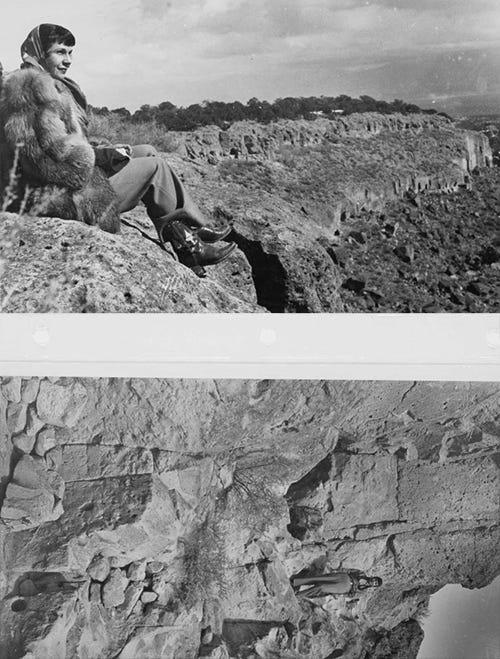
In 1947, Chalee married her second husband, Ed 'Natay' Lee, a Navajo artist and medicine man in Scottsdale, Arizona. They toured together for several years, performing in publicity events for Hollywood and Santa Fe Railway. In 1950, MGM hired Chalee to travel the country and promote Annie Get Your Gun. The couple entertained the audience, and Chalee spoke about her experience as a Native American. By the late 1950s, however, her marriage to Lee had ended. Chalee continued to work on commissions for paintings, murals and book illustrations.
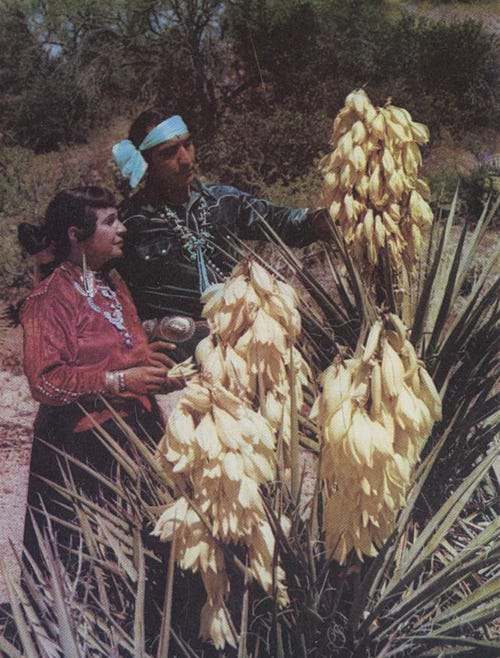
In later years, Chalee lived with relatives while continuing to paint. In the 1980s, she returned to Santa Fe, where she lived until her death. In 1990, Chalee was awarded the Governor's Award for Excellence in the Arts while restoring the Albuquerque murals. She completed her last mural for the New Mexico State Capitol Building two years later. Chalee died in 1993 at the age of 87.
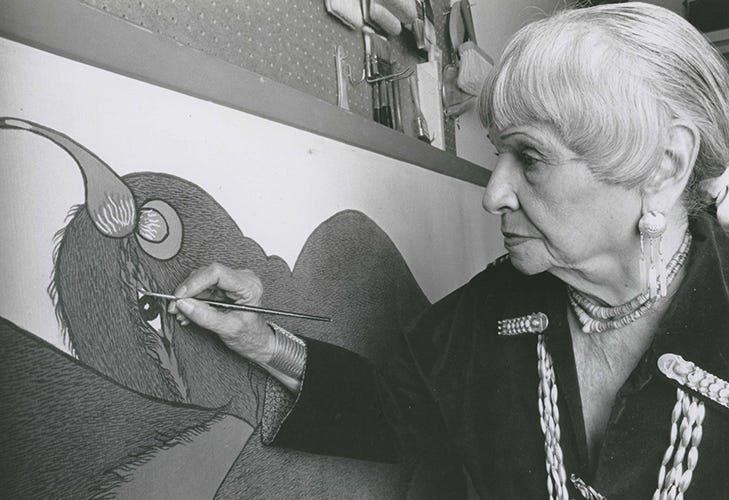
Keep reading with a 7-day free trial
Subscribe to Angela Rose Design to keep reading this post and get 7 days of free access to the full post archives.






